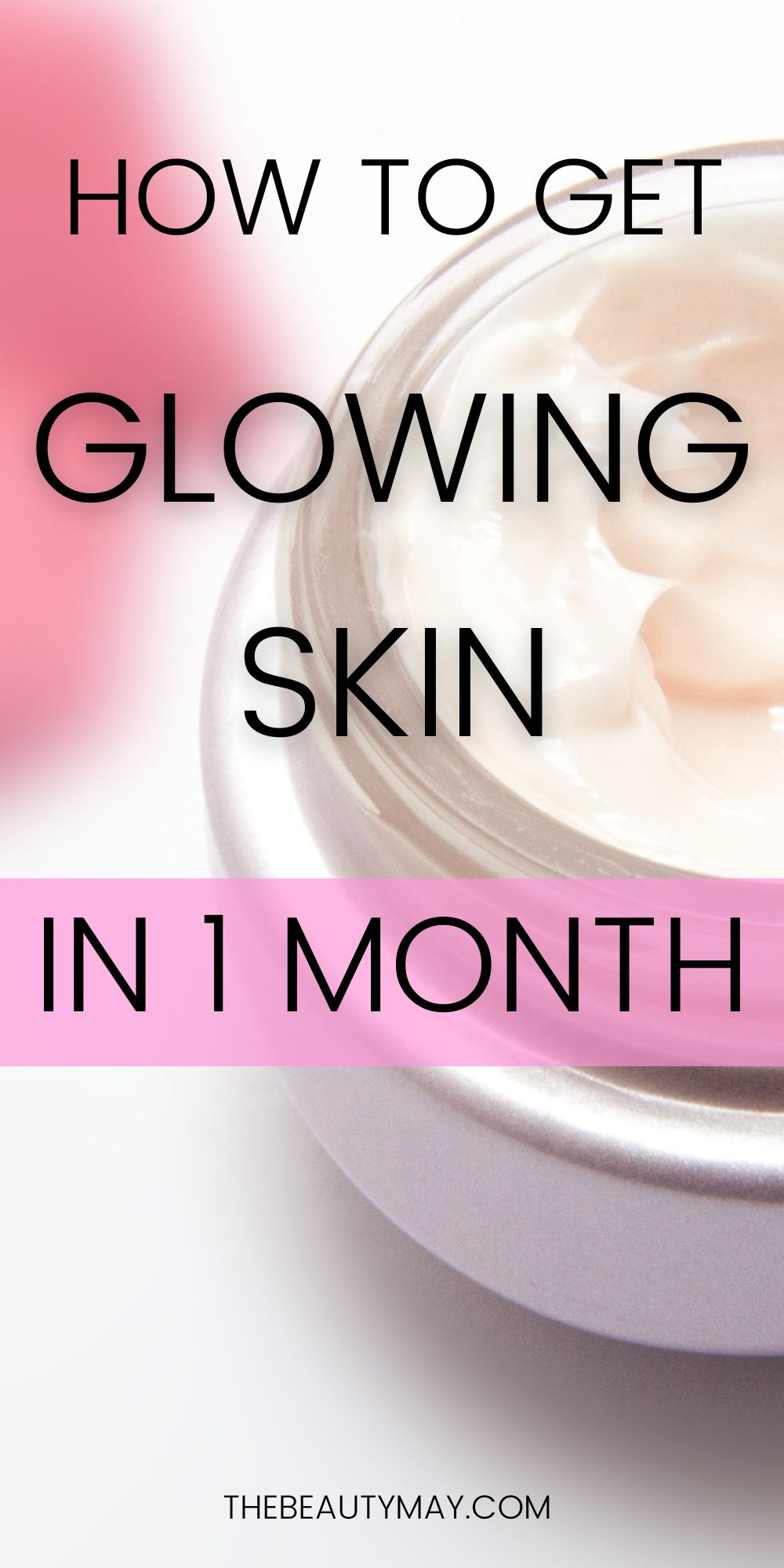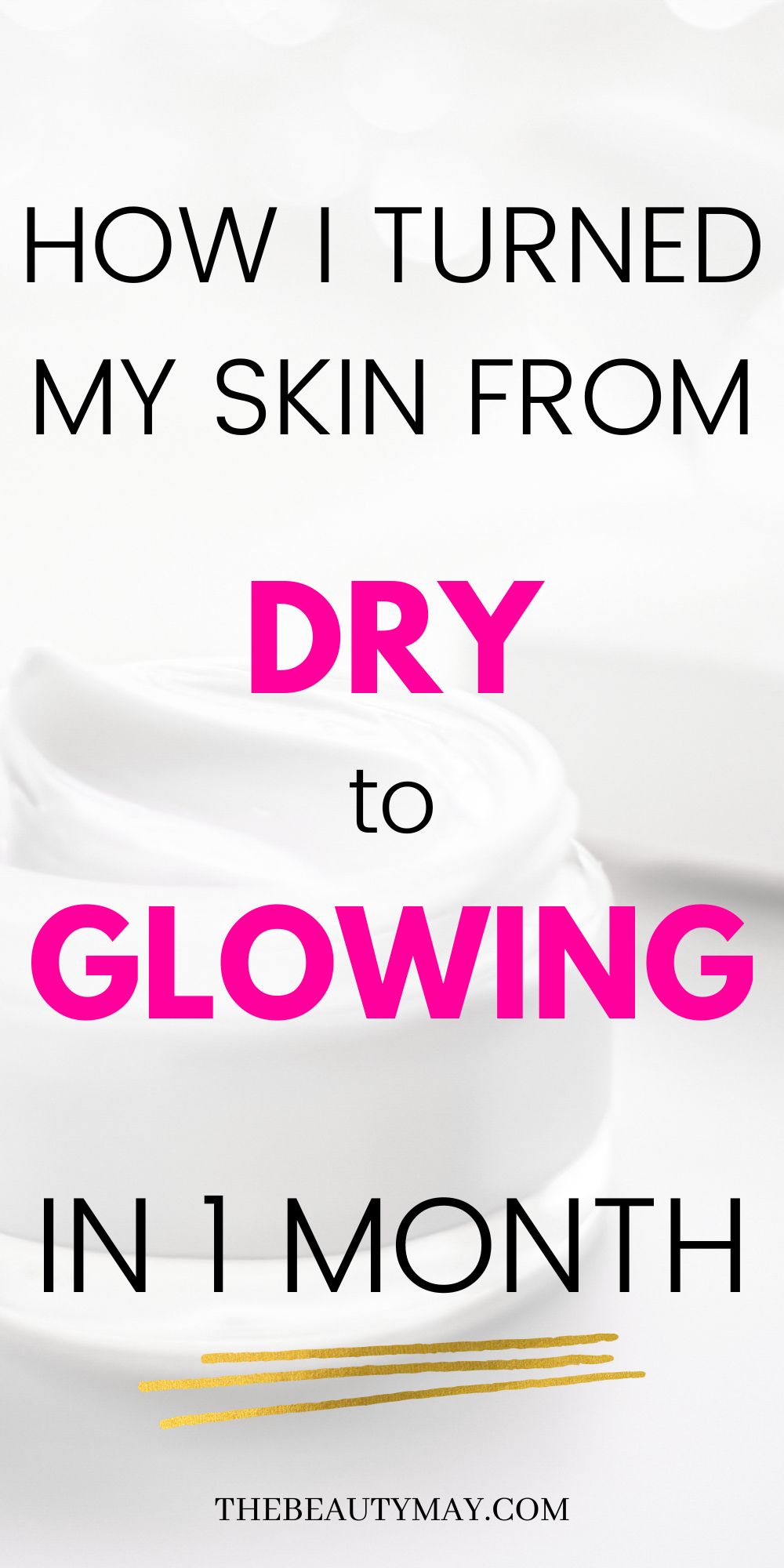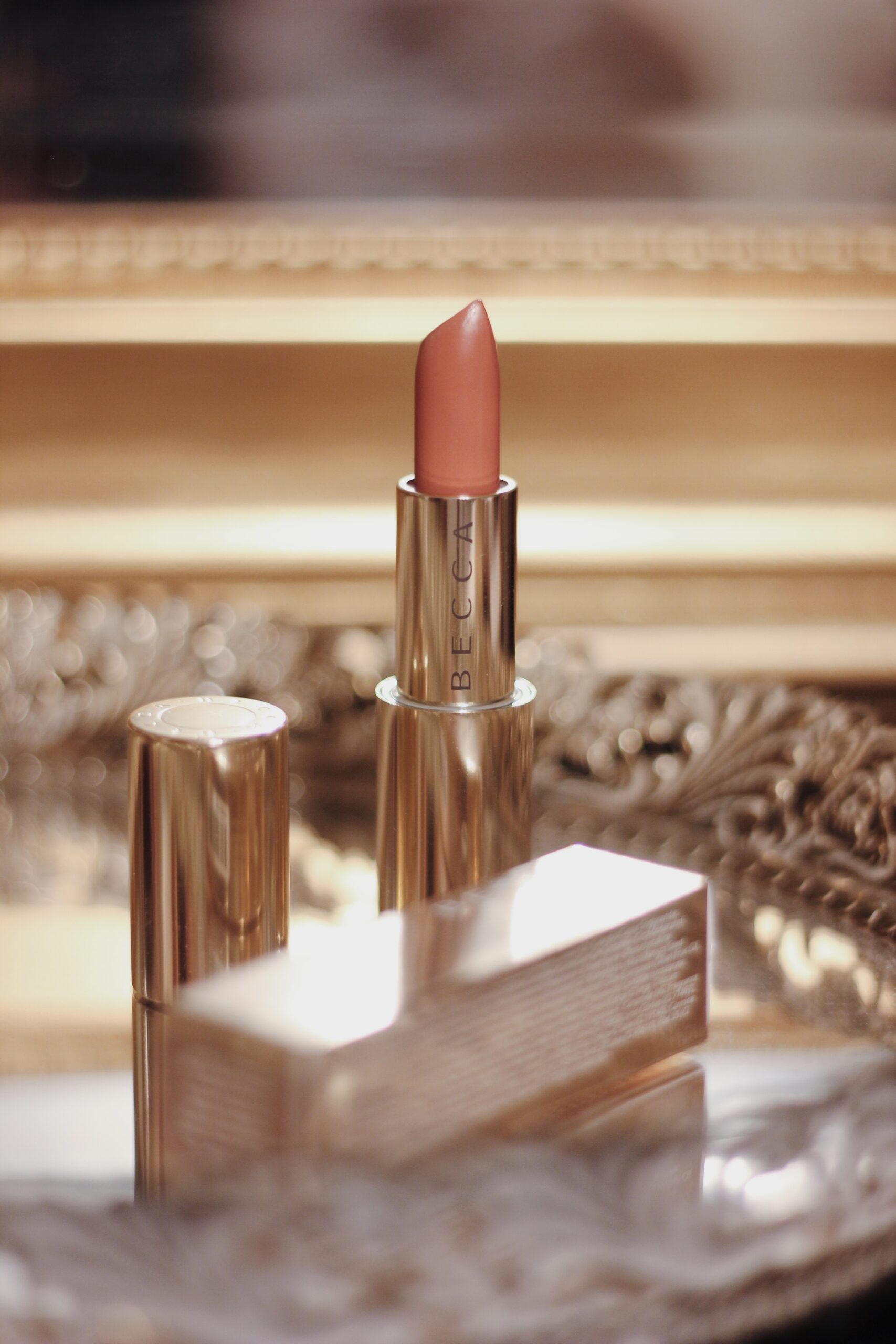This post is all about how to get glowing skin.
Achieving glowing skin involves a combination of good skincare practices, a healthy lifestyle, and proper nutrition.
While getting noticeable results in just one month may be challenging, you can follow an intensified skincare routine and make lifestyle adjustments to improve your skin’s appearance quickly. In this post you’ll find a more focused plan for achieving glowing skin in a shorter timeframe.
Disclosure: This page may contain affiliate links, which means that I get a commission if you decide to purchase through my links, at no cost to you. Read my disclaimer for more information.
How to Get Glowing Skin
1. Nourish Your Skin from the Inside Out
Your skin reflects what you put into your body. A well-balanced diet filled with nutrient-rich foods can make a world of difference in your complexion. Focus on these:
- Antioxidant-rich foods: These combat free radicals, which can damage your skin. Include berries, leafy greens, nuts, and seeds in your diet.
- Healthy fats: Omega-3 fatty acids found in fish, avocados, and flaxseeds can help keep your skin supple and hydrated.
- Hydration: Drink plenty of water throughout the day. Hydration is key to keeping your skin plump and glowing. Try infusing water with lemon, cucumber, or berries for an extra vitamin boost.
2. Establish a Skincare Routine
Consistency is key when it comes to skincare. Follow this basic routine morning and night to keep your skin clean, hydrated, and glowing:
- Cleanse: Use a gentle cleanser to remove dirt, oil, and makeup. Avoid harsh soaps that can strip your skin of its natural oils.
- Exfoliate: Exfoliating 1-3 times a week helps remove dead skin cells and promote cell turnover, giving your skin a fresh, healthy glow.
- Moisturize: A good moisturizer locks in hydration and strengthens your skin’s barrier. Choose one suitable for your skin type (lightweight for oily skin, richer for dry skin).
- Serum: Incorporate a serum with Vitamin C or hyaluronic acid to brighten skin and improve texture.
- Sunscreen: This is a must, even on cloudy days. UV rays can cause premature aging and dull your complexion. Look for a broad-spectrum SPF of at least 30.
3. Exfoliate Regularly, But Don’t Overdo It
Exfoliation is critical for glowing skin, as it helps slough off dead skin cells, revealing a brighter complexion. You can use physical exfoliants (scrubs) or chemical exfoliants like AHAs (alpha hydroxy acids) or BHAs (beta hydroxy acids).
However, over-exfoliating can damage the skin’s protective barrier, leading to irritation and breakouts. Stick to exfoliating 2-3 times a week to keep your skin radiant without overdoing it.
4. Prioritize Sleep and Stress Management
Getting enough sleep is crucial for healthy skin. When you’re sleep-deprived, your body produces more cortisol, the stress hormone that can lead to breakouts, inflammation, and dullness. Aim for 7-9 hours of sleep each night to allow your skin to repair itself.
To manage stress, try incorporating mindfulness, yoga, or deep breathing exercises into your routine. Stress can trigger skin problems like acne and eczema, so calming your mind benefits your skin.
5. Hydrate, Hydrate, Hydrate
Your skin needs hydration to stay plump and glowing. In addition to drinking enough water, consider using a hydrating face mist or a serum with hyaluronic acid, which can hold up to 1,000 times its weight in water.
For an extra hydration boost, try overnight masks or sleeping packs that work while you sleep.
6. Use Face Masks for an Instant Glow
Face masks can give your skin a quick boost of hydration, brightness, and rejuvenation. There are different types of masks to suit your skin’s needs:
- Hydrating masks: Great for dry or dehydrated skin, these masks replenish moisture and give your skin a dewy glow.
- Clay masks: Ideal for oily or acne-prone skin, these help draw out impurities and tighten pores.
- Sheet masks: Packed with serums, these masks can brighten and nourish your skin in just 10-20 minutes.
Use a face mask once or twice a week for the best results.
7. Supplement Wisely
Sometimes, even with a healthy diet, you may need supplements to support your skin. Here are a few that can help boost your glow:
- Vitamin C: Brightens skin and boosts collagen production.
- Collagen: Helps with skin elasticity and smoothness.
- Omega-3s: Reduces inflammation and hydrates skin from within.
- Biotin: Supports healthy skin, hair, and nails.
Always consult with a healthcare provider before starting any new supplements.
8. Limit Sun Exposure and Use SPF
Nothing dulls your glow faster than sun damage. Over time, exposure to UV rays can lead to dark spots, wrinkles, and a loss of skin elasticity. Make sunscreen your best friend and reapply every two hours when outdoors. Opt for mineral sunscreens containing zinc oxide or titanium dioxide for broad-spectrum protection.
Don’t forget to wear hats, sunglasses, and protective clothing when spending extended time in the sun!
💡TIP: Pin this article to your Skin Care board on Pinterest so you can always come back when you need to!
👇 👇 👇
You May Also Like:
How to Rebuild Collagen in the Face.
This post was all about how to get glowing skin.
Shopping destinations and deals you need to check out:
Enjoy free shipping on orders over 250 USD at The Ordinary
Receive 10% off your next purchase at Saks Fifth Avenue
Sign up via email and get 10% off at Perfume Direct




